Population Ageing
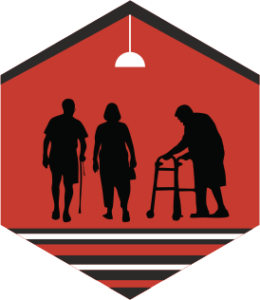 India is swiftly moving towards population ageing, with around 7% of its residents aged 60 and above in most states. The shift from the process of ‘ageing’ to the outcome of ‘an aged society’ is expected by 2036, with projections indicating that 15.2% of the population will be in this category. This demographic change results from successfully reducing fertility rates, lowering mortality rates, and halting out-migration. The rapid progression highlights the necessity for thorough planning and policies to address the distinct challenges of an aging population in India.
India is swiftly moving towards population ageing, with around 7% of its residents aged 60 and above in most states. The shift from the process of ‘ageing’ to the outcome of ‘an aged society’ is expected by 2036, with projections indicating that 15.2% of the population will be in this category. This demographic change results from successfully reducing fertility rates, lowering mortality rates, and halting out-migration. The rapid progression highlights the necessity for thorough planning and policies to address the distinct challenges of an aging population in India.
In Odisha, a substantial increase in the percentage of older persons is projected, rising from 11.5% in 2021 to an estimated 17% in 2036. Concurrently, the overall sex ratio (female per 1000 male) is anticipated to slightly adjust from 987 in 2021 to 994 females in 2036. Notably, the sex ratio within the older age cohort, already at 1042 females in 2021, is expected to further increase to 1082 by 2036.
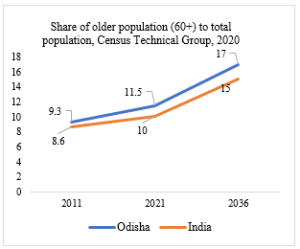 These demographic shifts present pressing challenges for Odisha. The increasing feminization of the ageing population, along with a heightened dependency ratio, indicates intensified pressures on current social, health, emotional support systems, as well as on opportunities for equal socio-economic engagement. The escalating proportion of older individuals, especially the concurrent rise in the dependency ratio, underscores the urgent need for robust policies and infrastructural adaptations to ensure adequate care, inclusive opportunities, and comprehensive support systems. Without proactive measures, the state may encounter a formidable surge in the demand for social and health services, potentially overwhelming the existing resources and compromising the overall well-being of its ageing population.
These demographic shifts present pressing challenges for Odisha. The increasing feminization of the ageing population, along with a heightened dependency ratio, indicates intensified pressures on current social, health, emotional support systems, as well as on opportunities for equal socio-economic engagement. The escalating proportion of older individuals, especially the concurrent rise in the dependency ratio, underscores the urgent need for robust policies and infrastructural adaptations to ensure adequate care, inclusive opportunities, and comprehensive support systems. Without proactive measures, the state may encounter a formidable surge in the demand for social and health services, potentially overwhelming the existing resources and compromising the overall well-being of its ageing population.
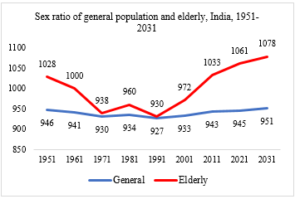 As per the 2011 census, the proportion of population residing in the urban areas of the state was 16.68%, significantly lower than the national average of 31.16%. The population density of Odisha was 269 per sq. km in the same year, placing the state at the 31st position in terms of urbanization among states. However, when considering the actual urban population, Odisha ranks 11th among states with the largest urban population.[1] Consequently, it can be inferred that a majority of older persons reside in rural areas and are likely to continue doing so in the near future.
As per the 2011 census, the proportion of population residing in the urban areas of the state was 16.68%, significantly lower than the national average of 31.16%. The population density of Odisha was 269 per sq. km in the same year, placing the state at the 31st position in terms of urbanization among states. However, when considering the actual urban population, Odisha ranks 11th among states with the largest urban population.[1] Consequently, it can be inferred that a majority of older persons reside in rural areas and are likely to continue doing so in the near future.
- Status of Population Ageing in Odisha
As the population ages, numerous challenges and opportunities arise. However, challenges are likely to become more pronounced due to insufficient emphasis on a robust policy framework, institutional set up, and inadequate resource allocation.
- Socio-economic
- As per Longitudinal Ageing Study of India (LASI) Wave I report,[2]3% of older persons in Odisha are currently working, slightly above the national average of 35.7%. Elderly in this state continue to work due to financial necessity.
- Only 5.5% of older persons in the state are covered in any work-related social insurance which is one of the lowest in the country.
- Minimum wage for semi-skilled labours is low in the state (Rs. 392 vs. Rs. 742 at national level). This lower wage put challenges in the livelihood of the elderly.
- Educational level is very low among elderly; 46% of them have no schooling while only 24% completed secondary education.
- Gender disparity exists in economic dependency; 54% of older men are economically dependent while it is 82% for women.
- Health and wellbeing
- The LASI report indicates that older individuals in Odisha are grappling with various non-communicable diseases (NCDs), including cardiovascular diseases (28.2%), hypertension (27%), and Diabetes Mellitus (9.9%). Remarkably, over 17% of the older persons in the state are affected.
- A study conducted at a reputable medical college in Odisha, involving 78 elderly patients, disclosed that half of these individuals faced both physical and mental co-morbidities, with a notable prevalence of psychotic disorders (Mahanta et al., 2022).
- Health care utilization is low among the elderly (25% access outpatient care).
- A staggering 37% of the elderly population in Odisha are underweight, highlighting significant nutritional deficiencies and protein intake inadequacies. Additionally, 13% report food insufficiency, either through reduced meal sizes or instances of going hungry despite feeling hungry.
These statistics highlight crucial healthcare challenges confronted by the elderly in Odisha. Although certain diseases have lower reported prevalence rates compared to the national average, disparities in treatment rates and healthcare access demand immediate attention. The prevalence of nutritional deficiencies, restricted healthcare utilization, and differing reliance on public and private facilities indicate a complex array of challenges that require targeted interventions and comprehensive healthcare strategies specifically tailored for the aging population in Odisha.
Moreover, constrained financial resources impede access to quality healthcare services, forcing many older individuals to prioritize basic needs over medical expenses. According to LASI, the mean out-of-pocket expenditure for out-patient care in Odisha is INR 1310. As a result, the elderly population bears an increased burden of health issues due to insufficient healthcare access and affordability, intensifying pressures on both individual health and the broader healthcare system in Odisha.
- Safety and Security
According to the 2020 report from the National Crime Records Bureau[3] the number of crimes against senior citizens was 24,349 in 2018, 27,804 in 2019, and 24,794 in 2020.
- It is noteworthy that, despite the challenges posed by the COVID-19 pandemic and successive lockdowns, the elderly were not exempt from criminal activities. Incidents such as murder, robbery, theft, abduction and even rape against senior citizens have been officially documented. It is essential to recognize that these are only the reported cases, and it is acknowledged that numerous vulnerable senior citizens may not be reluctant or unable to approach the police to register instances of abuse or crimes committed against them.
- A study conducted in 2021 by Muhammad et al. revealed that elder abuse in Odisha was reported at a lower prevalence of 2.86%, in contrast to the national average of 5.22%. However, it is notable that a substantial 45.99% of Odisha’s elderly population expressed concerns about the safety of their neighbourhoods, a rate significantly higher than the national average of 14%.
- According to HelpAge India’s annual studies on “Elder Abuse,” incidents of senior citizens facing abuse are reported in both public places and within their homes across various settings. Presently, the elderly have become susceptible targets for cyber fraud, leading to the depletion of their lifelong savings. This concerning trend is exacerbated by the advancements in technology and the digital divide faced by today’s elderly population.
- Review of current policies / programmes
The National Policy on Older Persons (NPOP), introduced in January 1999, underscores the commitment of state support for the overall well-being of elderly individuals. This support encompasses financial security, healthcare, shelter, and various other aspects.
- Odisha took a pioneering step by instituting the Odisha State Policy for Senior Citizens in 2016, with a dedicated department, SSEPD, specifically focused on addressing issues pertinent to the elderly.
- The officially recognized “Senior Citizen” age, as defined by the Maintenance and Welfare of Parents and Senior Citizens Act, 2007, has been applicable in Odisha since 2009.
- Social security programs like NSAP and Madhubabu Pension Yojana are in operation, extending pension benefits to a substantial portion of the elderly population.
- The National Program for Healthcare of Elderly (NPHCE) and the State Action Plan for Senior Citizens (SAPSrC) provide healthcare initiatives; however, challenges in implementation persist. To improve the situation, a concerted focus on robust policy and legal frameworks, coupled with effective implementation, is essential. Utilizing data from sources like LASI and internal records can assist the state government in crafting targeted policies, guaranteeing access to employment, healthcare, and a secure environment for older individuals.
- It is essential to include elderly individuals, both those in organised sectors who have retired and those in the unorgansied sector, under the BSKY irrespective of their economic status.
- Key issues/ discussion points
This demographic aging underscores the need for a thoughtful and proactive approach to tackle associated challenges in healthcare, social services, and economic planning within the state. Some of the emerging discussion points include:
- What is the current status of universal healthcare for the elderly in Odisha? What steps need to be taken to widen the reach of health care to the different segments of elderly population in the state?
- What is the current status of social security and economic security of elderly in Odisha? How can we establish a universally accessible socio-economic security net for every elderly individual in the state?
- How can we enhance age-appropriate skill-building and livelihood opportunities for the elderly? What needs to be done?
- The increasing demand for home-based geriatric care in both urban and rural settings necessitates proactive system preparation. How should the system gear up to address this emerging demand?
- What are the needs of the oldest old (79+ years)? How well-prepared is the state to cater to their specific requirements?
- Feminization of the aging population – Have we examined these issues, and how do we plan to support this segment of society?
- Ruralization of the aging population – What challenges lie ahead for the next generation and the state in addressing this shift?
Speaker / Panelists:
Shri Bishnupada Shethi ,
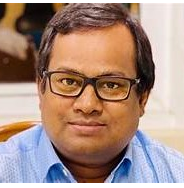 Currently serving as the Principal Secretary under Government of Odisha, leading dept. of social security and persons with disability. He handled mega cyclone Fani effectively as the Relief Commissioner and was recognised worldwide for his role. He has taken effective steps to improve the systems and give benefit to the people of KBK region for which he was appreciated by the National Human Rights Commission, which was then monitoring starvation deaths in KBK region. He has served as the Secretaries to different departments of Govt. of Odisha. He has been the instrumental in the adoption of Odisha Rehabilitation and Resettlement Policy, 2006 and Odisha Fishery Policy, 2015 under the United Nations Development Program project. He has played vital roles in many policy level reformations and executions for the Govt. of Odisha. He has published monographs on eleven indigenous breeds of animals like cattle, buffalo and goat of Odisha which led to registration of seven breeds, for the first time after independence of the country. He has also published a number of articles and books which have been received well and have been translated to other languages.
Currently serving as the Principal Secretary under Government of Odisha, leading dept. of social security and persons with disability. He handled mega cyclone Fani effectively as the Relief Commissioner and was recognised worldwide for his role. He has taken effective steps to improve the systems and give benefit to the people of KBK region for which he was appreciated by the National Human Rights Commission, which was then monitoring starvation deaths in KBK region. He has served as the Secretaries to different departments of Govt. of Odisha. He has been the instrumental in the adoption of Odisha Rehabilitation and Resettlement Policy, 2006 and Odisha Fishery Policy, 2015 under the United Nations Development Program project. He has played vital roles in many policy level reformations and executions for the Govt. of Odisha. He has published monographs on eleven indigenous breeds of animals like cattle, buffalo and goat of Odisha which led to registration of seven breeds, for the first time after independence of the country. He has also published a number of articles and books which have been received well and have been translated to other languages.
Ghasiram Panda,National Project Lead – Child Rights, ActionAid Association
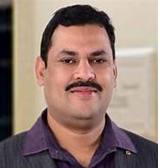 Ghasiram Panda has more than 25 years of experience working as a grass root development worker. Many of his articles have been published; talk shows broadcasted on different child rights issues especially on Right to Education and Ending Child Marriage. He is the advisor on Right to Education to Odisha State Commission for Protection of Child Rights. He is also a member of the State Level Committee on Prohibition of Child Marriage by the Women and Child Development Department, Government of Odisha. He is also nominated as a member to the State Level Monitoring Committee for the Shelter for Urban Homeless by the Housing and Urban Development Department, Government of Odisha. He has worked as an expert member constituted by the Odisha State commission for Protection of Child rights to make the quarantine centers child friendly during COVID19. He has been a part of the working group of Girls not Bride to develop policy papers on child protection and ending child marriage. ActionAid Association (AA) is a national organization and an affiliate of ActionAid International federation, a global movement of people working together to further human rights and committed to defeat poverty and injustice. Working in India since 1972, AA currently operates out of 12 Regional Offices, spread across 25 States and one Union Territory. A non-profit, AA has been working with people, by building their agencies and solidarities at local, national and international levels.
Ghasiram Panda has more than 25 years of experience working as a grass root development worker. Many of his articles have been published; talk shows broadcasted on different child rights issues especially on Right to Education and Ending Child Marriage. He is the advisor on Right to Education to Odisha State Commission for Protection of Child Rights. He is also a member of the State Level Committee on Prohibition of Child Marriage by the Women and Child Development Department, Government of Odisha. He is also nominated as a member to the State Level Monitoring Committee for the Shelter for Urban Homeless by the Housing and Urban Development Department, Government of Odisha. He has worked as an expert member constituted by the Odisha State commission for Protection of Child rights to make the quarantine centers child friendly during COVID19. He has been a part of the working group of Girls not Bride to develop policy papers on child protection and ending child marriage. ActionAid Association (AA) is a national organization and an affiliate of ActionAid International federation, a global movement of people working together to further human rights and committed to defeat poverty and injustice. Working in India since 1972, AA currently operates out of 12 Regional Offices, spread across 25 States and one Union Territory. A non-profit, AA has been working with people, by building their agencies and solidarities at local, national and international levels.
Dr. Bidhu K Mohanti,
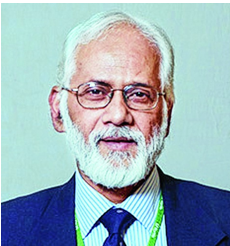 Worked in the fields of Oncology and cancer care services for 38 years as a Faculty and Consultant in AIIMS, Manipur Hospitals, Fortis Hospital. His major areas of skill sets, expertise and experience cover Radiation Oncology, Multi-Disciplinary Cancer Management, Setting up Oncology facility and centre, National and International Collaboration, Guiding teaching and research in Oncology.Currently, he is leading as the Director-Academic, Bagchi Sri Shankara Cancer Centre & Research Institute, Bhubaneswar!
Worked in the fields of Oncology and cancer care services for 38 years as a Faculty and Consultant in AIIMS, Manipur Hospitals, Fortis Hospital. His major areas of skill sets, expertise and experience cover Radiation Oncology, Multi-Disciplinary Cancer Management, Setting up Oncology facility and centre, National and International Collaboration, Guiding teaching and research in Oncology.Currently, he is leading as the Director-Academic, Bagchi Sri Shankara Cancer Centre & Research Institute, Bhubaneswar!
Ms. Bharati Chakra,Joint Director & State Head,HelpAge India
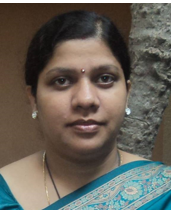 Ms. Bharati Chakra is a social development professional. A post-graduate in Rural Development and Master in Public Administration, she has been working in the social development sector since last 23 years in organizations like Vasundhara, Action-Aid India and Save the Children in all parts of the state and represented thematic issues like child protection, community forestry and climate change, right to education, disaster risk reduction etc. in various national and international forums. Since the year 2015, she is serving as the Joint-Director and State Head of HelpAge India – an organisation working for the disadvantaged Senior Citizens in the country. In her two decades of work in the development sector, she has worked on various social issues ranging from relief and rehabilitation of disaster survivors, Women Rights, Child Rights – Right to Education and Right to Protection of children, Rights of Migrant Workmen, Rights of persons with disabilities, Environment and Climate Change and Rights of Senior Citizens in Odisha. She also served as the focal person for Anti-Sexual Harassment Committee member in Save the Children- India.She was part of the drafting committee of Odisha State Policy for Senior Citizens-2016, launched by Govt. of Odisha. Currently, she other than leading the state program of HelpAge India, she also represents the Odisha – Inter Agency Group of International NGOs on disaster response as the Vice-Chairperson and is also an Executive Committee member of Sphere India. She brings with her the ground level experience of various social development issues being faced by the destitute and the deprived section of the community and advocates on how good governance can play a significant role in making life better for the under-privileged section of society.
Ms. Bharati Chakra is a social development professional. A post-graduate in Rural Development and Master in Public Administration, she has been working in the social development sector since last 23 years in organizations like Vasundhara, Action-Aid India and Save the Children in all parts of the state and represented thematic issues like child protection, community forestry and climate change, right to education, disaster risk reduction etc. in various national and international forums. Since the year 2015, she is serving as the Joint-Director and State Head of HelpAge India – an organisation working for the disadvantaged Senior Citizens in the country. In her two decades of work in the development sector, she has worked on various social issues ranging from relief and rehabilitation of disaster survivors, Women Rights, Child Rights – Right to Education and Right to Protection of children, Rights of Migrant Workmen, Rights of persons with disabilities, Environment and Climate Change and Rights of Senior Citizens in Odisha. She also served as the focal person for Anti-Sexual Harassment Committee member in Save the Children- India.She was part of the drafting committee of Odisha State Policy for Senior Citizens-2016, launched by Govt. of Odisha. Currently, she other than leading the state program of HelpAge India, she also represents the Odisha – Inter Agency Group of International NGOs on disaster response as the Vice-Chairperson and is also an Executive Committee member of Sphere India. She brings with her the ground level experience of various social development issues being faced by the destitute and the deprived section of the community and advocates on how good governance can play a significant role in making life better for the under-privileged section of society.
Dr. Bidhu K Mohanti
Worked in the fields of Oncology and cancer care services for 38 years as a Faculty and Consultant in AIIMS, Manipur Hospitals, Fortis Hospital. His major areas of skill sets, expertise and experience cover Radiation Oncology, Multi-Disciplinary Cancer Management, Setting up Oncology facility and centre, National and International Collaboration, Guiding teaching and research in Oncology. Currently, he is leading as the Director-Academic, Bagchi Sri Shankara Cancer Centre & Research Institute, Bhubaneswar!
Dr. Lekha Subaiya,Assistant Professor,Population Research Centre,ISEC Bangalore
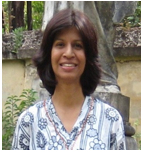 Dr. Lekha Subaiya works as an Assistant Professor at the Population Research Centre (PRC), Institute for Social and Economic Change (ISEC). Dr. Subaiya is an acclaimed demographer and sociologist having publications on gender issues in different parts of the world. Her research interests are in the areas of Demography and Stratification with focus on migration, older adults, women’s health, family dynamics, ageing issues and gender. Her academic qualification includes Ph.D. in Sociology from the University of Maryland, USA and Masters in Sociology from the same university. For her distinguished contribution, she has been awarded with “The William and Flora Hewlett Demography Traineeship” and “Population Reference Bureau, Policy Communications Fellow.”
Dr. Lekha Subaiya works as an Assistant Professor at the Population Research Centre (PRC), Institute for Social and Economic Change (ISEC). Dr. Subaiya is an acclaimed demographer and sociologist having publications on gender issues in different parts of the world. Her research interests are in the areas of Demography and Stratification with focus on migration, older adults, women’s health, family dynamics, ageing issues and gender. Her academic qualification includes Ph.D. in Sociology from the University of Maryland, USA and Masters in Sociology from the same university. For her distinguished contribution, she has been awarded with “The William and Flora Hewlett Demography Traineeship” and “Population Reference Bureau, Policy Communications Fellow.”
Dr. Ritu Rana, Mission Head- Health Care, HelpAge India
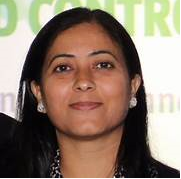 Dr. Ritu Rana is currently serving as the Mission Head-Health Care in HelpAge India. She is proficient in Public Health Planning and Implementation of large interventions. She has 23 years of experience in Public Health, Policy, Planning and Implementation of National Health Programs and other Health interventions. Previously, she worked at Ministry of Health & Family Welfare, WHO –India Office and in the other Development sectors.
Dr. Ritu Rana is currently serving as the Mission Head-Health Care in HelpAge India. She is proficient in Public Health Planning and Implementation of large interventions. She has 23 years of experience in Public Health, Policy, Planning and Implementation of National Health Programs and other Health interventions. Previously, she worked at Ministry of Health & Family Welfare, WHO –India Office and in the other Development sectors.
Dr. Susanta Swain
Dr. Susanta Swain is an Epidemiologist and Public Health Specialist. Having completed his Masters in applied Epidemiology from National Institute of Epidemiology, Chennai and also a special course on crafting HIV response from University of Hawaii, Manoa. Currently working with Govt. of Odisha in the Dept. of Health and Family Welfare, he has served in various positions such as State Epidemiologist under National AIDS Control Program at West Bengal, as Team Leader (Strategic Planning) under Technical Supprot Unit of Odisha State Aids Control Society, as Deputy Director (HIV/AIDS)Deputy Director (HIV/AIDS), Odisha State AIDS Control Society – India, as Joint Director Health ServicesJoint Director Health Services, Health & Family Welfare Department, Odisha, as Nodal Officer -Cancer Care and now working as Additional Director – NCD under H & FW Dept. Govt. of Odisha. He is the state in-charge looking after National Program for Health Care of Elderly in Odisha.
Dr. Madhumita Ray, Professor, Xavier University
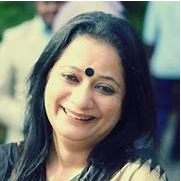 Dr. Madhumita Ray holds a Ph.D. degree in Anthropology (Utkal), the topic of coverage being “Power and Potentialities of the Dongria and Kutia Kondh women of Rayagada and Kandhamal districts and the Role of Women in the Welfare Process.” She has long years of experience in social development sector, having been associated with organizations such as ActionAid India, Harsha Trust and Centre for Advocacy and Research for above two decades. She has also worked as independent consultant with organisations and institutions like TDH Suisse, Centre for World Solidarity, UNICEF, Institute for local self-governance -Govt. of Odisha, NAWO, AAINA, Lepra India and OTELP (Odisha Tribal Empowerment and Livelihood Project) Govt of Odisha. Her academic pursuits include her tenure as Assistant Professor in KIIT University, School of Rural Management and currently she is a visiting faculty to Department of Economics and Liberal Arts.
Dr. Madhumita Ray holds a Ph.D. degree in Anthropology (Utkal), the topic of coverage being “Power and Potentialities of the Dongria and Kutia Kondh women of Rayagada and Kandhamal districts and the Role of Women in the Welfare Process.” She has long years of experience in social development sector, having been associated with organizations such as ActionAid India, Harsha Trust and Centre for Advocacy and Research for above two decades. She has also worked as independent consultant with organisations and institutions like TDH Suisse, Centre for World Solidarity, UNICEF, Institute for local self-governance -Govt. of Odisha, NAWO, AAINA, Lepra India and OTELP (Odisha Tribal Empowerment and Livelihood Project) Govt of Odisha. Her academic pursuits include her tenure as Assistant Professor in KIIT University, School of Rural Management and currently she is a visiting faculty to Department of Economics and Liberal Arts.
Anupama Datta, Head- Policy & Advocacy, HelpAge India
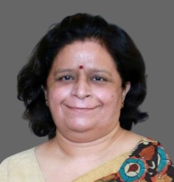 Ms Datta has M.Phil from JNU on a topic on political process. She worked in research departments in various voluntary organizations on issues like violence against women, child labour and development induced displacement. She is working with HelpAge India for the last 20 years in Policy Research and Advocacy department. Her major thrust of work is to research and mainstream the issues concerning older persons. The findings of her major research projects on elder abuse, impact of disasters on elderly, social security are used to sensitize the policy makers and legislators to take note and take appropriate action to deal with the issues. The findings are also used to help the older person articulate and aggregate their interest and put forth the relevant demands on to the political system.She is also the Editor of HelpAge India Research and Development Journal and published 20 articles on ageing in various books and journals.
Ms Datta has M.Phil from JNU on a topic on political process. She worked in research departments in various voluntary organizations on issues like violence against women, child labour and development induced displacement. She is working with HelpAge India for the last 20 years in Policy Research and Advocacy department. Her major thrust of work is to research and mainstream the issues concerning older persons. The findings of her major research projects on elder abuse, impact of disasters on elderly, social security are used to sensitize the policy makers and legislators to take note and take appropriate action to deal with the issues. The findings are also used to help the older person articulate and aggregate their interest and put forth the relevant demands on to the political system.She is also the Editor of HelpAge India Research and Development Journal and published 20 articles on ageing in various books and journals.
Shri Bishnupada Shethi ,
 Currently serving as the Principal Secretary under Government of Odisha, leading dept. of social security and persons with disability. He handled mega cyclone Fani effectively as the Relief Commissioner and was recognised worldwide for his role. He has taken effective steps to improve the systems and give benefit to the people of KBK region for which he was appreciated by the National Human Rights Commission, which was then monitoring starvation deaths in KBK region. He has served as the Secretaries to different departments of Govt. of Odisha. He has been the instrumental in the adoption of Odisha Rehabilitation and Resettlement Policy, 2006 and Odisha Fishery Policy, 2015 under the United Nations Development Program project. He has played vital roles in many policy level reformations and executions for the Govt. of Odisha. He has published monographs on eleven indigenous breeds of animals like cattle, buffalo and goat of Odisha which led to registration of seven breeds, for the first time after independence of the country. He has also published a number of articles and books which have been received well and have been translated to other languages.
Currently serving as the Principal Secretary under Government of Odisha, leading dept. of social security and persons with disability. He handled mega cyclone Fani effectively as the Relief Commissioner and was recognised worldwide for his role. He has taken effective steps to improve the systems and give benefit to the people of KBK region for which he was appreciated by the National Human Rights Commission, which was then monitoring starvation deaths in KBK region. He has served as the Secretaries to different departments of Govt. of Odisha. He has been the instrumental in the adoption of Odisha Rehabilitation and Resettlement Policy, 2006 and Odisha Fishery Policy, 2015 under the United Nations Development Program project. He has played vital roles in many policy level reformations and executions for the Govt. of Odisha. He has published monographs on eleven indigenous breeds of animals like cattle, buffalo and goat of Odisha which led to registration of seven breeds, for the first time after independence of the country. He has also published a number of articles and books which have been received well and have been translated to other languages.

